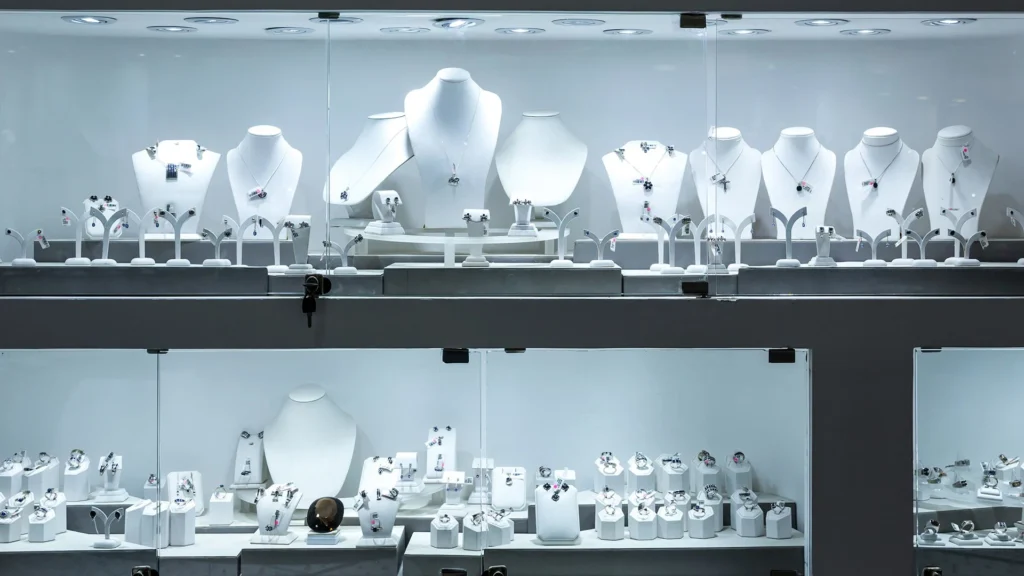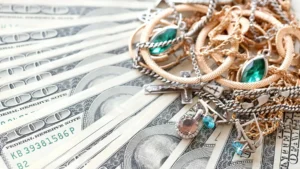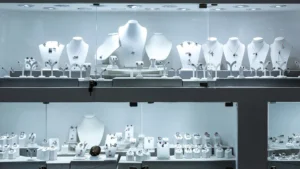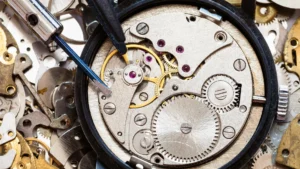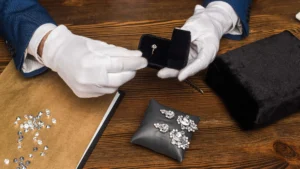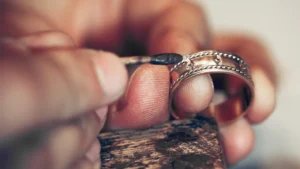The choice of metal in jewelry is as significant as the gemstones or design itself. The metal not only provides the structure and durability of a piece but also profoundly influences its aesthetic appeal, longevity, care requirements, and price point. From the warm glow of gold to the sleek sophistication of platinum and the versatile charm of silver, understanding the properties and characteristics of different metals is essential for both jewelry enthusiasts and those looking to make a meaningful purchase.
This comprehensive guide will delve into the most popular metals used in jewelry, exploring their unique qualities, advantages, disadvantages, and ideal applications. Whether you’re selecting a setting for a precious gemstone, choosing a metal for everyday wear, or considering the long-term investment of a piece, this knowledge will empower you to make informed decisions and select jewelry that you’ll treasure for years to come.
The Timeless Appeal of Gold:
Gold has been prized for its beauty and rarity for millennia. In jewelry, gold is rarely used in its pure 24-karat form due to its softness. Instead, it’s alloyed with other metals to increase its durability and alter its color. The karatage indicates the percentage of pure gold in the alloy:
- 24K Gold: Pure gold, known for its rich yellow color but very soft and easily scratched. Primarily used for bullion or intricate, less-worn pieces.
- 22K Gold: Contains 91.6% pure gold, offering a deeper yellow hue and slightly more durability than 24K. Often used in traditional or ethnic jewelry.
- 18K Gold: Contains 75% pure gold, striking a balance between richness of color and durability for everyday wear. A popular choice for fine jewelry.
- 14K Gold: Contains 58.3% pure gold, offering greater durability and resistance to scratching, making it a practical choice for frequently worn pieces like engagement rings. Often more affordable than higher karats.
- 10K Gold: Contains 41.7% pure gold, the most durable and often the most affordable gold option. Less vibrant in color compared to higher karats.
Beyond karatage, the color of gold is determined by the metals it’s alloyed with:
- Yellow Gold: The natural color of gold, enhanced by alloys like copper and zinc. Classic and warm in tone.
- White Gold: Created by alloying yellow gold with white metals like nickel, palladium, or silver, and then typically plated with rhodium for a bright, silvery finish. Requires replating over time to maintain its whiteness.
- Rose Gold: Achieves its pinkish hue through alloying yellow gold with copper. The amount of copper determines the intensity of the rose color. Offers a romantic and vintage appeal.
The Sleek Sophistication of Platinum:
Platinum is a naturally white, lustrous, and rare precious metal prized for its strength, durability, and hypoallergenic properties. Unlike white gold, platinum doesn’t require plating and retains its silvery-white color. It’s also denser than gold, giving jewelry a substantial feel. While often more expensive than gold, its durability and lasting beauty make it a popular choice for significant pieces like wedding bands and heirloom jewelry.
The Versatile Charm of Silver:
Silver, particularly sterling silver (92.5% pure silver alloyed with copper), is a popular choice for jewelry due to its affordability and bright, reflective shine. While softer than gold and prone to tarnishing due to reaction with sulfur, regular cleaning can easily restore its luster. Silver offers a versatile backdrop for various gemstones and designs, ranging from delicate and intricate to bold and contemporary.
Exploring Alternative Metals:
Beyond the traditional precious metals, other metals have gained popularity in jewelry for their unique properties and aesthetic:
- Palladium: A naturally white metal in the platinum family, offering similar hypoallergenic properties and durability at a potentially lower cost.
- Titanium: A lightweight yet incredibly strong and corrosion-resistant metal. Often used in modern and industrial-style jewelry, as well as for its hypoallergenic properties.
- Stainless Steel: A durable, affordable, and hypoallergenic alloy known for its resistance to rust and tarnish. A popular choice for contemporary and casual jewelry.
Choosing the Right Metal for Your Jewelry:
The best metal for your jewelry depends on several factors:
- Budget: Gold and platinum are generally more expensive than silver and alternative metals. Karatage significantly affects the price of gold.
- Lifestyle: For everyday wear, durability is key. Higher karat gold (14K, 10K), platinum, and strong alternative metals like titanium and stainless steel are good choices.
- Skin Sensitivity: Platinum, palladium, titanium, and hypoallergenic stainless steel are excellent options for those with metal allergies.
- Desired Aesthetic: The color and luster of the metal should complement your style and the gemstones in the piece. Consider the warmth of yellow and rose gold versus the coolness of white gold, platinum, and silver.
- Maintenance: Silver requires regular cleaning to prevent tarnish, while white gold needs replating. Platinum is relatively low maintenance, and gold’s maintenance depends on its karatage.
- Longevity and Investment: Precious metals like gold and platinum hold their value well over time, making them good choices for investment pieces.
Understanding the properties and characteristics of different metals empowers you to choose jewelry that not only looks beautiful but also suits your lifestyle and preferences. Whether you’re drawn to the classic elegance of gold, the enduring strength of platinum, the versatile charm of silver, or the unique appeal of alternative metals, the right choice will ensure your jewelry remains a cherished possession for years to come.

